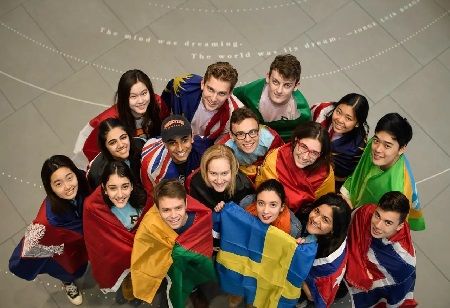- Kazakhstan ratifies an agreement for mutual recognition of higher education diplomas with Kyrgyzstan, Tajikistan, Turkmenistan, and Uzbekistan.
- The deal streamlines credential validation, enabling graduates to pursue professional work, further study, and internships across Central Asia.
- Recognition is based on institutional quality and comparability of educational standards, with safeguards to maintain academic integrity and document authenticity.
According to ApplyBoard's '2026 Trends Report: Building and Rebuilding Global Education', rising tuition fees and increasingly strict visa requirements are making international students rethink traditional study destinations. For years, countries like Canada, the United States, the United Kingdom, and Australia have been considered the default options for higher education; now, they're seeing softer demand as students take affordability and post-study opportunities into greater consideration.
For instance, the number of study permits issued in Canada is expected to drop by 54% in 2025, while post-graduation work permits will fall by 30%, reflecting increased financial and regulatory burdens on future students. Similar trends have been seen in the US, UK, and Australia, where increasing tuition, compliance rules, and proof-of-funds requirements have increased the financial burden on international learners.
Countries like Germany, Ireland, France, and Spain now offer alternatives, with relatively cheap tuition fees and flexible options for post-study work and visa policies. Germany has become one of the major attractive places for studying, considering that most universities do not charge international students for tuition. Its evolving study-to-work pathways, along with recent dual citizenship reforms, have made it far easier for graduates to work and settle in the country.
Equally relatively affordable education and generous post-study work options are on offer from Ireland, which also appeals to students looking for European work experience after graduation. France and Spain are gaining traction as a result of their friendly tuition, along with supportive measures such as national housing programs and simplified visa procedures.
Also Read: The Impact of Teacher Training Programs on Educational Quality
France plans to welcome 30,000 Indian students by 2030 with streamlined graduate work opportunities and uniform housing support. Spain offers a mixture of quality education, good weather, an active cultural scene, and ease in visa policies, making it an increasingly attractive destination for non-European students looking to balance study and lifestyle.
Outside Europe, the countries that are making a deliberate increase in their international student enrollments are South Korea and the United Arab Emirates. South Korea's growing reputation as a technological hub attracts students of engineering and computer science, while in the UAE, longer post-study work rights and efficient immigration systems have ensured that it is a strategic destination for students from Asia and the Middle East.
Affordability, career prospects, and post-study work opportunities now feature highly in the calculations of students, who often consider them more important than the reputation of institutions. Global student mobility will take on new dimensions, with rising importance for Europe, Asia, and the Middle East, possibly reaching 10 million globally by 2030.
This trend is also bound to positively impact local travel and tourism industries with increased demand for housing, transport, and student services in cities like Berlin, Paris, and Barcelona. In short, today's students look at studying abroad through a financial and strategic calculation. This, in turn, is driving a new era of global education, which will increasingly reshape economies, policies, and educational landscapes in several regions.

